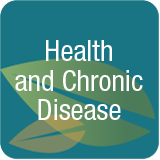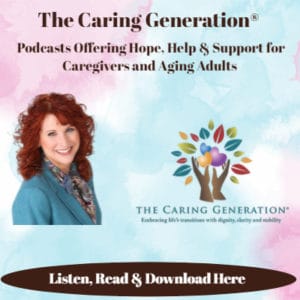Chronic Disease: The Risks of High Blood Pressure
 The risks of high blood pressure have far-reaching effects on health. yet many individuals with high blood pressure aren’t aware they have this condition.
The risks of high blood pressure have far-reaching effects on health. yet many individuals with high blood pressure aren’t aware they have this condition.
Research conducted by the Robert Wood Johnson Foundation in a report called Chronic Conditions: Making the Case for Ongoing Care (2002) reports that 33% of the chronically ill in America are not receiving information and services needed to successfully manage their illnesses.
Dangerous health behaviors are found in persons with high risks for complications of illness yet these individuals walk around unaware. For example:
-
- 66% of persons diagnosed with diabetes do not exercise regularly
- 28% have never had a doctor observe them monitoring their blood sugar
- 26% of persons diagnosed with heart disease are still smoking
- Only 50% of individuals have had their doctor advise them to quit smoking
- 40% of persons with high blood pressure have never been advised to limit salt intake or to lose weight.
Many people diagnosed with chronic disease are uneducated not only about the disease but how the disease progresses and what they might do to slow, prevent or stop the progression of the chronic disease.
The Risks of High Blood Pressure
Hypertension – what is it? Hypertension is a fancy word to describe high blood pressure.
Thirty-three percent of American adults experience high blood pressure; many individuals remain undiagnosed. Blood pressure readings are generally two numbers: the top number is called systolic pressure, the pressure created when your heart beats.
Systolic pressure is considered high if is consistently above 140. The bottom number is called diastolic pressure, the pressure inside blood vessels when your heart is at rest. Diastolic pressure is considered high if consistently over 90.
The Scary Truth About High Blood Pressure
The scary truth about high blood pressure is that there are often no symptoms. Symptoms of high blood pressure include chest pain, confusion, ear noise or buzzing, irregular heartbeat, nosebleeds, tiredness, or vision changes.
High blood pressure can affect anyone. Research indicates you have a higher risk of high blood pressure if you have a family history of heart disease.
High blood pressure is more common in African Americans than Caucasians. Smoking, obesity, and diabetes are all risk factors for high blood pressure.
Other factors you might not think of that cause high blood pressure: drinking alcohol, use of birth control pills, appetite suppressants, certain cold medications, and migraine medications. Other factors like how much water and salt you have in your body, the condition of your kidneys, and the levels of different body hormones may affect blood pressure.
Many times no cause can be identified as a factor for high blood pressure. High blood pressure is commonly undiagnosed in women.
Reasons to Check Blood Pressure Regularly
Everyone over the age of 18 should have regular blood pressure checks. Automatic blood pressure monitors are available for purchase at most drug stores.
If you have high blood pressure and do not want to take medications, what actions might you take?
- Lose weight as excess weight strains the heart. In some cases losing weight will reduce your blood pressure. Exercise regularly, if possible 30 minutes a day but check with your doctor first if you have not exercised regularly.
- Eat a healthy diet and use salt substitutes or herbs if you are unable to total restrict the use of salt.
- Read food labels, you will be surprised at how much salt is in the foods you commonly eat.
- Avoid processed meals and some canned foods, like soups which often have very high salt content. Blood pressure guidelines recommend limiting salt intake to 2400 milligrams per day, about 1 teaspoon of salt.
- Avoid smoking and alcohol use.
- If you are diabetic be especially careful to maintain proper blood sugar levels.
The Relationship Between Stress and High Blood Pressure
Another important consideration in managing high blood pressure is managing stress. Ancient relaxation methods that include controlled breathing and gentle physical activity, such as yoga, Qigong, and Tai Chi, are beneficial.
People with mild hypertension who practiced these healing techniques daily for two to three months experienced significant decreases in blood pressure had lower levels of stress hormones and were less anxious.
High Cholesterol Contributes to Heart Disease
Manage your cholesterol levels. Cholesterol is a direct contributor to cardiovascular disease, which can lead to strokes and heart attacks.
According to Dr. Laurence S. Sperling, Director of Preventive Cardiology at Emory University School of Medicine, Atlanta, Georgia, “Despite all of the amazing medicines and treatments we have, cardiovascular disease is still the number one cause of death and illness in our society.”
The World Health Organization estimates that almost 20% of all strokes and over 50% of all heart attacks can be linked to high cholesterol.
Learning About Cholesterol
LDL is also called “bad cholesterol” — Sperling suggests that you think of the “L” as standing for lousy. LDL cholesterol clogs arteries, increasing the risk of heart attack and stroke.
It’s a good idea to have your LDL cholesterol number under 100. However, people who already have heart disease may need to target a number under 70.
HDL is “the good cholesterol.” Imagine the “H” representing the word healthy or happy. This type of cholesterol attaches to bad cholesterol and brings it to the liver, where it’s filtered out of the body.
HDL cholesterol reduces the amount of bad cholesterol in your system. A good number to target is 60 or higher. When was the last time you had your cholesterol checked?
Know Your Numbers & Pay Attention to Nutrition
According to the CDC, in 2005 almost a quarter of American adults said they hadn’t had their cholesterol checked in the last five years. The problem is that neither high blood pressure nor high cholesterol cause symptoms that make people pay attention.
Both conditions can exist for years without someone paying attention. You can lower your cholesterol by changing your diet.
Steam, broil, grill, or stir fry your foods. Eliminate fatty foods like butter, sour cream, or whipped cream. Remove skin from chicken.
Learn to eat your vegetables without sauces. Eat salads but order dressing on the side so you use less. If you eat dessert, stick to sorbet or fresh fruits. It’s no secret — becoming or staying healthy takes work.
Don’t Wait to Take Action for Your Health
If you are diagnosed with a chronic disease, now is the time to take action to become more educated. No one but you can accept and learn about your health diagnosis and then decide — what are you willing to do to avoid becoming another statistic?
Or do you choose to become another person, who because of a lack of education and a willingness to take responsibility for the care of your own body, becomes physically or mentally disabled, incapacitated, or weak because you didn’t know better?
We must eliminate ignorance in the health care system by being proactive, accepting, and choosing to take part in the care of our bodies.
Remember, your physician makes the diagnosis. Only you can change the outcome. Educate yourself today – it is never too late and you are never too old to learn.
© 2012, 2013, 2022 Pamela D. Wilson, All Rights Reserved



